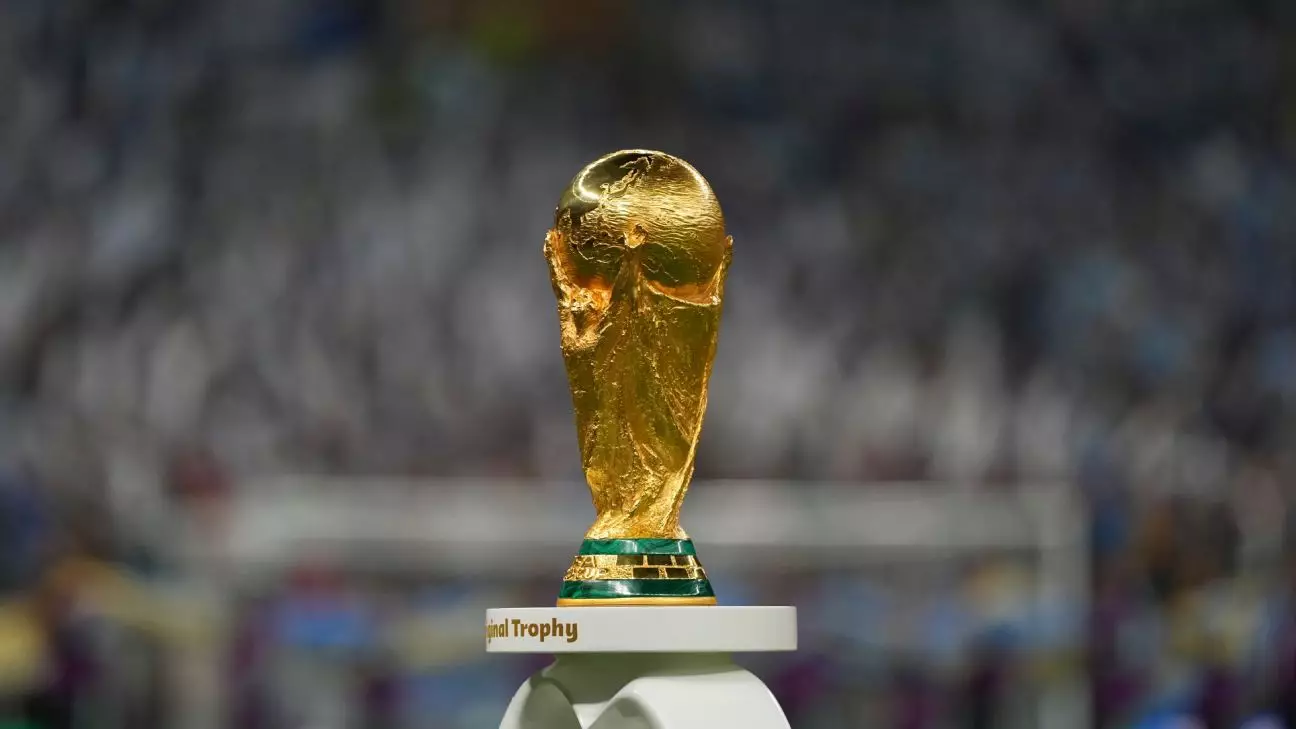FIFA is once again at a crossroads as it plans for the 2034 men’s World Cup in Saudi Arabia. The governing body of football is facing significant pushback from prominent European leagues, particularly the Premier League and LaLiga, which are concerned about the potential for severe disruptions in the fixture calendar. As FIFA prepares to announce Saudi Arabia as the host—following a period where it was the sole bidder—the implications of this decision on global football cannot be understated.
The decision to host the 2034 World Cup during the winter months presents itself as a mirror to the controversial 2022 World Cup in Qatar. Due to the extreme climate conditions in the Middle East, FIFA has determined that the tournament will likely be scheduled between October and April to avoid the sweltering summer heat. This mid-season format is expected to mirror the structure of the previous tournament, where European leagues experienced significant disruption.
The challenge is compounded not just by the calendar shifts but also by the observation that a 48-team tournament in 2034 could lead to an extended competition that includes as many as 104 matches. This escalated format poses a potential threat to the integrity of domestic leagues, as they would have to navigate the ripple effects of player absences and the extended tournament duration—estimated at five weeks—leading to club commitments being affected for as long as seven weeks.
Moreover, the tension between FIFA and the European leagues is escalating into legal territory. Recently, FIFPRO Europe, the players’ union, alongside various national leagues, has brought forth a legal complaint to the European Commission. This complaint addresses FIFA’s dual role as both a competition organizer and regulator of the International Match Calendar, spotlighting a clear conflict of interest.
With the complaint predominantly focusing on FIFA’s organization of upcoming global tournaments—including the men’s 2026 World Cup and the 2025 FIFA Club World Cup—it crystallizes the concerns of many stakeholders who fear player fatigue and burnout brought on by an over-ambitious schedule. These are not unfounded concerns; the 2022 World Cup already resulted in significant adjustments to league operations, with several clubs pausing their respective seasons to accommodate the new timeline.
In spite of these rising tensions, reports indicate that FIFA has not adequately engaged in discussions with the major leagues or players’ unions regarding the 2034 World Cup’s scheduling. This is essential as FIFA requires consensus from these parties to deviate from the established June-July window that has traditionally hosted the World Cup. The failure to do so does not only risk further legal challenges but also represents a lack of regard for the operational realities clubs face under the current calendar.
FIFA has maintained that the existing International Match Calendar will remain in place until 2030, ensuring all stakeholders, including leagues and players, are consulted before the rules are set for the 2034 tournament. However, the question remains whether such consultation can bear fruit or if it is merely a procedural formality aimed at avoiding conflict while still pushing through with its plans.
As FIFA stands on the threshold of making significant decisions that will shape the future of international football, the controversy surrounding the 2034 World Cup reflects deeper tensions within the sport. The need for a collaborative approach appears paramount in reconciling domestic league schedules with the global spectacle of the World Cup. Failure to achieve this balance could not only jeopardize the well-being of players but also compromise the integrity of club football during a period of profound transformation. The coming months will undoubtedly be critical as FIFA attempts to navigate these treacherous waters while aiming to uphold the spirit and global love for the beautiful game.

Leave a Reply